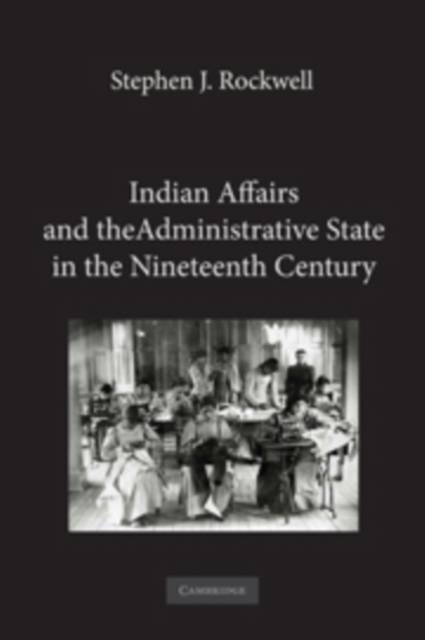
- Afhalen na 1 uur in een winkel met voorraad
- Gratis thuislevering in België vanaf € 30
- Ruim aanbod met 7 miljoen producten
- Afhalen na 1 uur in een winkel met voorraad
- Gratis thuislevering in België vanaf € 30
- Ruim aanbod met 7 miljoen producten
Zoeken
Indian Affairs and the Administrative State in the Nineteenth Century
Stephen J Rockwell
Hardcover | Engels
€ 210,45
+ 420 punten
Uitvoering
Omschrijving
The framers of the Constitution and the generations that followed built a powerful and intrusive national administrative state in the late-eighteenth and nineteenth centuries. The romantic myth of an individualized, pioneering expansion across an open West obscures nationally coordinated administrative and regulatory activity in Indian affairs, land policy, trade policy, infrastructure development, and a host of other issue areas related to expansion. Stephen J. Rockwell offers a careful look at the administration of Indian affairs and its relation to other national policies managing and shaping national expansion westward. Throughout the nineteenth century, Indian affairs were at the center of concerns about national politics, the national economy, and national social issues. Rockwell describes how a vibrant and complicated national administrative state operated from the earliest days of the republic, long before the Progressive era and the New Deal.
Specificaties
Betrokkenen
- Auteur(s):
- Uitgeverij:
Inhoud
- Aantal bladzijden:
- 374
- Taal:
- Engels
Eigenschappen
- Productcode (EAN):
- 9780521193634
- Verschijningsdatum:
- 7/06/2010
- Uitvoering:
- Hardcover
- Formaat:
- Ongenaaid / garenloos gebonden
- Afmetingen:
- 160 mm x 236 mm
- Gewicht:
- 680 g

Alleen bij Standaard Boekhandel
+ 420 punten op je klantenkaart van Standaard Boekhandel
Beoordelingen
We publiceren alleen reviews die voldoen aan de voorwaarden voor reviews. Bekijk onze voorwaarden voor reviews.











